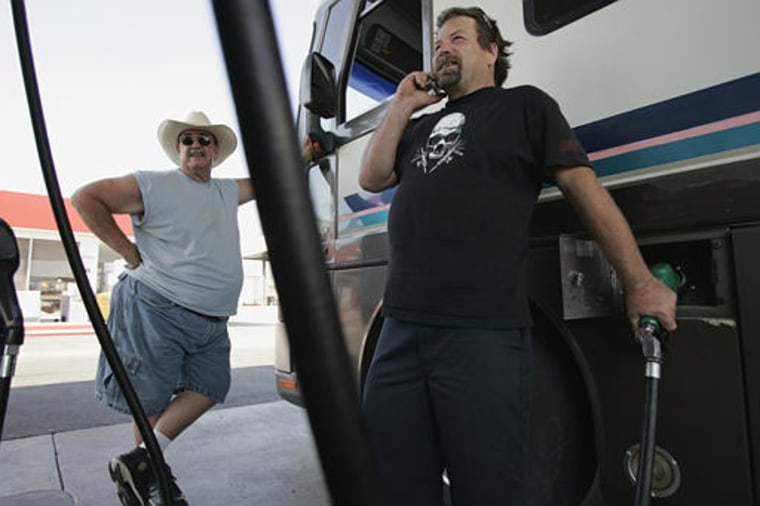Labor Day traffic slowed around the country as drivers lucky to find gas stations open paid over 30 percent more than before Hurricane Katrina disrupted Gulf Coast refinery and pipeline operations a week ago.
Pump prices are starting to level off, but analysts say the dramatic rise in gasoline costs has forced consumers to begin rethinking everything from vacation travel plans to how much they can afford to spend for food, clothing and restaurant meals.
Drivers paid an average of about $3.20 a gallon for unleaded regular on Monday, up $1.35 from a year ago, and 75 cents more than they did before the hurricane, according to Randy Bly, director of community relations for AAA Auto Club South.
The federation of motor clubs had originally forecast that 34.5 million Americans would travel 50 miles or more this Labor Day weekend. But Bly thinks that estimate was too high as drivers were spooked by the spike in gas prices and reports of shortages at gas stations in midwestern, southern and northeast states.
“We feel very certain Hurricane Katrina will bring this (original estimate) lower,” Bly said.
In Georgia, a moratorium on gas taxes and a slight dip in wholesale prices helped level fuel prices to an average of $3.05. On Friday, Gov. Sonny Perdue ordered a month-long moratorium on state gas taxes and called legislators into a special session Tuesday to ratify the decision. The governor’s order suspends Georgia’s 7.5 cents-a-gallon excise tax and 4 percent sales tax on gasoline until the end of September.
Robert and Claire Smith of Rockford, Ill., had planned to take their four children to an amusement park, but the high price of gas kept them from making the drive of over one hour. Instead, they visited both sets of grandparents nearby.
“The kids just don’t understand. Their day is not set by what gas prices are,” Robert Smith said, adding that, on Labor Day morning, his eight-year old had “this long face” of disappointment.
Ohio State Highway Patrol Sgt. Michael Forshe in Zanesville said traffic was definitely down on central Ohio’s interstate, I-70, this weekend. “I don’t see it as the end-of-summer blowout like it used to be,” he said.
Higher gas prices may have also slowed sales in shopping malls this Labor Day weekend.
Michael Solomon, who owns and operates Great American Cookie stores in malls in Kentucky, Nevada, Indiana and West Virginia, said his weekend sales were “well below expectations.”
“It started Friday when all the gas prices jumped up,” said Solomon. Store managers in West Virginia and Kentucky also told him local gas stations were out of gas, which he assumes caused some consumers to stay at home rather than venture to malls.
“It was slower than usual. People spent the same amount of money. It just felt like there were less people,” said Solomon, who fears that he may have to raise his prices if high energy costs boost what he pays for freight and other services.
Much of the rise in gas prices stems from major disruption in how oil and gas are produced and delivered in the U.S. Gulf coast states.
These facilities were responsible for producing 1.4 million barrels of oil each day, equal to what is imported from Saudi Arabia each day, and 80 percent of that, or some 1.2 million barrels, was halted because of Hurricane Katrina, according to John Felmy, chief economist at the American Petroleum Institute.
At one point, nearly 95 percent of the production from these Gulf Coast facilities was disrupted last week.
The magnitude of the damage to the Gulf Coast facilities and the time it takes to repair them may have an impact on the overall U.S. economy, warned Chris Low, chief economist at FTN Financial.
Low recalled that two years ago, energy related costs like gas at the pump or heating oil for homes made up about 4 percent of household budget. That had risen to 5.5 percent prior to Hurricane Katrina and is likely to rise further, he said.
“I would think that certainly some of the discretionary spending would drop. There will be those who think twice about driving at all,” said Low.
